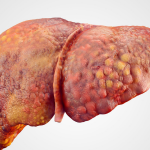More Research on Healthy Bacteria’s Clinical Use in Ulcerative Colitis
NODE SMITH, ND
A new study published in Nature Communications demonstrates that a consortium of bacteria designed to complement missing or underrepresented functions in the imbalanced microbiome of inflammatory bowel disease (IBD) patients, prevented and treated chronic immune-mediated colitis in humanized mouse models. The study’s senior author, Balfour Sartor, MD, Midget Distinguished Professor of Medicine, Microbiology and Immunology, Co-Director of the UNC Multidisciplinary IBD Center, said the results are encouraging for future use treating Crohn’s disease and ulcerative colitis patients.
“The idea with this treatment is to restore the normal function of the protective bacteria in the gut, targeting the source of IBD, instead of treating its symptoms with traditional immunosuppressants that can cause side effects like infections or tumors,” Sartor said.
The live bacteria consortia, called GUT-103 and GUT-108, were developed by biotech firm Gusto Global. GUT-103 is comprised of 17 strains of bacteria that work together to protect and feed each other. GUT-108 is a refined version of GUT-103, using 11 human isolates related to the 17 strains. These combinations permit the bacteria to stay in the colon for an extended amount of time, as opposed to other probiotics that are not capable of living in the gut and pass through the system quickly.
GUT-103 and GUT-108 were given orally three times a week to “germ-free” mice (no bacteria present) that had been specially developed and treated with specific human bacteria, creating a humanized mouse model. The therapeutic bacteria consortia worked by addressing upstream targets, rather than targeting a single cytokine to block downstream inflammation responses, and reversed established inflammation.
“It also decreased pathobionts — bacteria that can cause harm — while expanding resident protective bacteria, and produced metabolites promoting mucosal healing and immunoregulatory responses,” Sartor said. “Simply put — the treatment increased the good guys and decreased the bad guys.”
Because of the robust results seen in this study, and the need for more alternative therapies for Crohn’s disease, Sartor would like to see GUT-103 and GUT-108 studied in Phase 1 and 2 clinical trials in the future. He plans to continue his work with Gusto Global to further explore uses of the bacterial consortia.
This work was funded by Gusto Global, LLC. Daniel Van der Lelie, PhD, Chief Executive Officer of Gusto Global, is the first author of this study. Germ-free mice were provided by grants from the National Institutes of Health (NIH) and the Crohn’s and Colitis Foundation.
1. Daniel van der Lelie, Akihiko Oka, Safiyh Taghavi, Junji Umeno, Ting-Jia Fan, Katherine E. Merrell, Sarah D. Watson, Lisa Ouellette, Bo Liu, Muyiwa Awoniyi, Yunjia Lai, Liang Chi, Kun Lu, Christopher S. Henry, R. Balfour Sartor. Rationally designed bacterial consortia to treat chronic immune-mediated colitis and restore intestinal homeostasis. Nature Communications, 2021; 12 (1) DOI: 10.1038/s41467-021-23460-x

Node Smith, ND, is a naturopathic physician in Humboldt, Saskatchewan and associate editor and continuing education director for NDNR. His mission is serving relationships that support the process of transformation, and that ultimately lead to healthier people, businesses and communities. His primary therapeutic tools include counselling, homeopathy, diet and the use of cold water combined with exercise. Node considers health to be a reflection of the relationships a person or a business has with themselves, with God and with those around them. In order to cure disease and to heal, these relationships must be specifically considered. Node has worked intimately with many groups and organizations within the naturopathic profession, and helped found the non-profit, Association for Naturopathic Revitalization (ANR), which works to promote and facilitate experiential education in vitalism.









